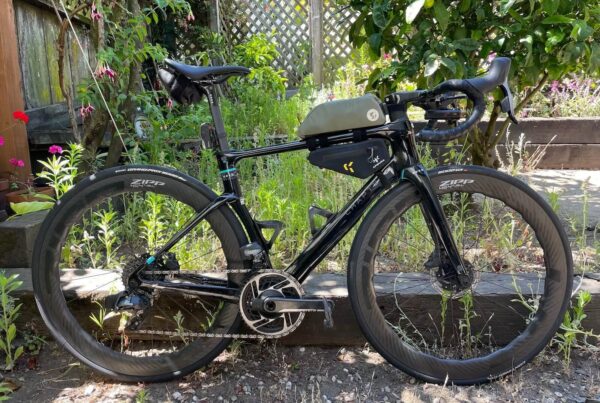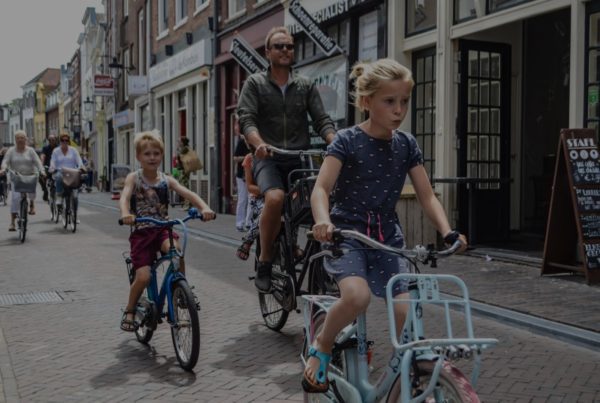This news article featuring Bob Mionske and Rick Bernardi has been reproduced here for our archives.
By Sam Levin Tue., Nov. 27 2012
Yesterday, we reported that Denver Police are now enforcing state drunk-cycling laws — meaning intoxicated cyclists can be charged with DUIs just like inebriated drivers. Some cycling advocates question whether this is good public policy — and a look at parallel laws around the country shows that Denver’s approach is harsher than some other states’ enforcement rules.
The Denver policy change was spurred by a complaint from an individual who got in an accident with a cyclist who did not face charges for riding while intoxicated. Although Colorado law says drunk cycling is illegal and cyclists under the influence can be charged with DUIs, the Denver Police Department had not been enforcing this policy. Then, last week, Denver Police Chief Robert White announced in an internal memo that the department would start enforcing state law and charging drunk cyclists with DUIs.
The move has sparked a lot of debate in a city where cycling is on the rise, and so are the number of collisions on the road. At the same time, tensions between cyclists and drivers seem to be at an all-time high, especially with recent high-profile cases of alleged bike rage.
The policy change is especially of concern to the organizers of the city’s famous Denver Cruiser Ride, a weekly group cycling event during which participants stop at bars.
DPD officials argue that the department is simply enforcing state law and encouraging safe behavior, but some cycling advocates worry that this new plan could potentially encourage bar patrons to get back in their cars — which they see as a more dangerous option — instead of riding their bikes. Some question whether the DPD enforcement is an efficient use of resources, arguing that intoxicated cyclists are much less of a menace than drunk drivers.
So how do other cities address this somewhat complicated question?
Piep van Heuven, executive director of BikeDenver, the city’s main advocacy group for cyclists, sent us a bicycling.com article outlining different state’s policies in regard to riding bikes under the influence.
In some cases, it appears that the laws are more lax for drunk cyclists than for drunk drivers.
Notably, South Dakota has a law designed to encourage people who have had too much to drink to ride bikes instead of cars, as detailed in this excerpt:
South Dakota changed its state law to make bicycling under the influence legal. Legislators wanted to encourage people who’d had too much to drink to ride their bikes instead of driving. However, you can be arrested for disorderly conduct if you make a drunken spectacle of yourself.
A site called DrivingLaws.org notes that, as a result of a case called State v. Bordeaux in South Dakota, officials carved out an exception in DUI policies for people riding bicycles (and, apparently, horses).
“The reason they changed it [in South Dakota] was because they wanted to encourage people not to drive drunk,” says Rick Bernardi, who is a research assistant with BicycleLaw.com, law practice of attorney Bob Mionske, who focuses exclusively on representing injured bicyclists. “If someone is riding a bike and they’re drunk, we’d rather have that than somebody…in a car.”
In some states, the laws seem to be a bit harsher than the South Dakota policy, but penalties don’t necessarily rise to the level of treating drunk cyclists the same as those who drive drunk. The bicycling.com article notes:
In California, BUI [biking under the influence] is a separate offense from DUI and doesn’t carry the same consequences. Cyclists can request a blood-alcohol test if they want to try to prove they’re sober, but police can’t require cyclists to be tested. In Washington, drunk cyclists can be stopped–and transported to a safe place–but not arrested for DUI.
A University of California site says the consequences for a so-called BUI (bicycling under the influence) include a fine of up to $730 and possible documentation on the individual’s driving record.
A Washington bike law website notes a provision on “intoxicated bicyclists” that allows police officers to “offer to transport a bicycle rider who appears to be under the influence of alcohol or any drug” to a “safe place”.
Oregon has one of the strictest laws in this category, says Bernardi, who has done research on DUI policies for cyclists and contributed to the bicycling.com article. There, he says, drunk cyclists are treated exactly the same as drunk drivers and face the same consequences.
“It’s about as harsh as you can get,” he says, adding, “I think it’s going overboard. It’s not to say that there’s no harm done with DUI on a bike, but really, the harm you are doing is to yourself…. I just don’t see the point of imprisoning someone or taking their driver’s license away.”
As we reported yesterday, it is unclear at this time how Denver’s DUI policy for cyclists might impact an individual’s record. But Bernardi says Colorado’s policy may be pretty similar to Oregon’s.
Of course, these other states are very different from Colorado, and cycling in Denver presents unique challenges. It’s also worth noting that the DPD is aligning its operations with state rules, not creating any new law.
“States deal with these issues in different ways,” says van Heuven. “And we see that in the state laws in some of these other places, they are trying to not incentivize people to choose driving a motorized vehicle if they are under the influence, and they may do that by lessening the penalty if you are operating a human-powered device.”
In researching this issue, van Heuven found that in Colorado in 2010, 98 people were killed as a result of drunk drivers, representing 22 percent of all traffic fatalities, according to a recent press release. In contrast, she says, there’s likely not very good local data on the consequences of drunk cycling.
National data, however, shows that alcohol does play a significant role in fatal cycling crashes across the country.
According to the National Highway Traffic Safety Administration, 24 percent of the cyclists killed in 2010 had a blood alcohol concentration of .01 grams per deciliter or higher, and over one-fifth had a BAC of .08 g/dL or higher. And alcohol-involvement — either for the driver of a motorized vehicle or a cyclist — was reported in more than 34 percent of the traffic crashes that resulted in a cyclist fatality.
Bernardi believes the more relaxed state drunk-cycling policies seem to make more sense, since drunk cyclists are generally only a hazard to themselves.
“Not to say that society doesn’t want to protect people on bikes,” he says, “but you’re not gonna kill somebody else.”



